Say, “Cheese!”
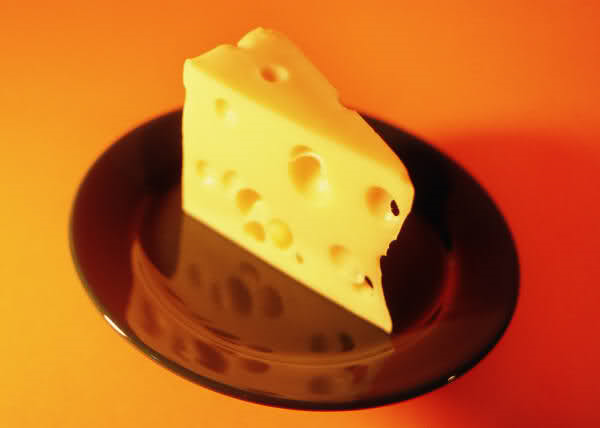
I’ve always heard that “necessity is the mother of invention” but I also think that it is “the mother of learning something new”. Such was the case recently after a productive trip to our local grocery which is owned and operated by the Absentee-Shawnee Indian Tribe. On this particular day I discovered that the store had block cheese on sale; 1 8oz block for $1. Never one to pass up a good deal, I decided that if one block of cheddar was good, 20 blocks of a variety of cheese was phenomenal! I tossed mild cheddar, mozzarella, sharp cheddar, pepper jack and cojack into my cart and trotted on down the isle. To my surprise, I found that Velveeta was on sale too. Oh joy.
Now, I must digress here for a sec in defense of Velveeta cheese PRODUCT. Although I realize that Velveeta is the plasticized version of cheese, it is a must for any kitchen simply because it melts sooooo smoothly. It is wonderful for cream soups. It is true that nobody REALLY knows where Velveeta comes from. And while we are told that it is made from milk, it could be guinea pig milk for all we know. However, while we ponder how one milks a guinea pig, the rest of America is enjoying its queso made with Velveeta, picante sauce and maybe some ground beef flavored with taco seasoning. Velveeta is to the cheese world what Spam is to the ham world. Each has its purpose.
And so, I got my Velveeta and checked out. On my way home, it occurred to me that all of this cheese had to have a place to go to stay fresh. I usually grate my hard cheese, put it into bags that I can vacuum on my FoodSaver sealer and then freeze it, but this was going to be an enormous amount of grated cheese. What if I wanted sliced cheese? My experience with freezing blocks of cheese for slicing had been less than successful. I had been totally unhappy with frozen Velveeta, so what to do? What to do?
Thank goodness for the Internet. Enola Gay at Paratus Familia had the solution. Can it! Can cheese? Really? She showed how to can hard cheeses and that got me to thinking about canning the Velveeta too. I researched and researched and found several ways to do that as well. I wound up with what I think worked best for me. So first, I’ll show you how I canned the hard cheeses and then the Velveeta. Talk about handy. You can’t believe how wonderful it is to have canned cheeses. You can shred and slice the hard cheese and the Velveeta is just as good as if it were in the box. I suppose at this point I should throw in the disclaimer that I haven’t found anything that indicates the government watchdogs have given their seal of approval to this, but then, they don’t like us canning apple pie filling either. From everything I have read, these canned cheeses last up to two years.
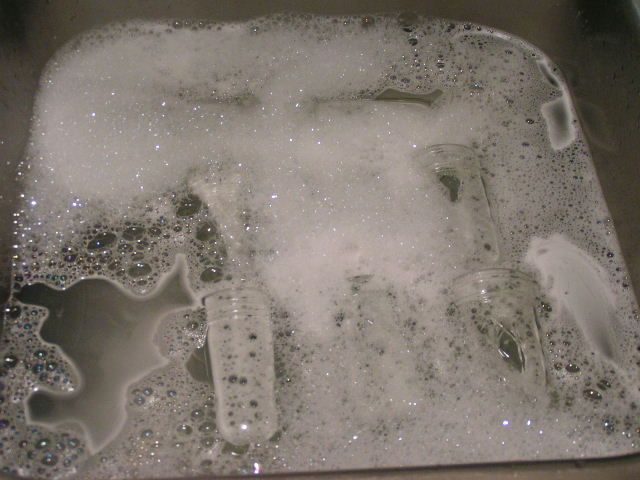 It is important that you sterilize your jars. Here, I am using the 8 oz size because there are just two of us and that is perfect for two people. First I wash them in hot, soapy water and then place in a large pot to bring to a boil. Then I remove them to place upside down on a dry towel. It is important to use wide mouthed jars for easy removal of the cheese.
It is important that you sterilize your jars. Here, I am using the 8 oz size because there are just two of us and that is perfect for two people. First I wash them in hot, soapy water and then place in a large pot to bring to a boil. Then I remove them to place upside down on a dry towel. It is important to use wide mouthed jars for easy removal of the cheese.
Canning Hard Cheeses
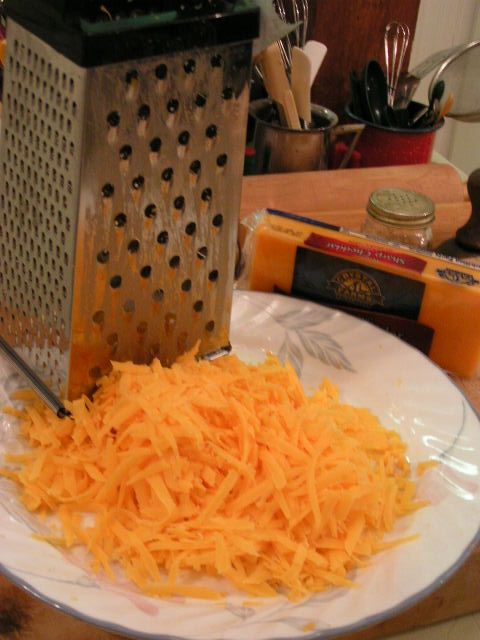 Shred the cheeses. You can use a food processor here, but by hand isn’t all that more time consuming.
Shred the cheeses. You can use a food processor here, but by hand isn’t all that more time consuming.
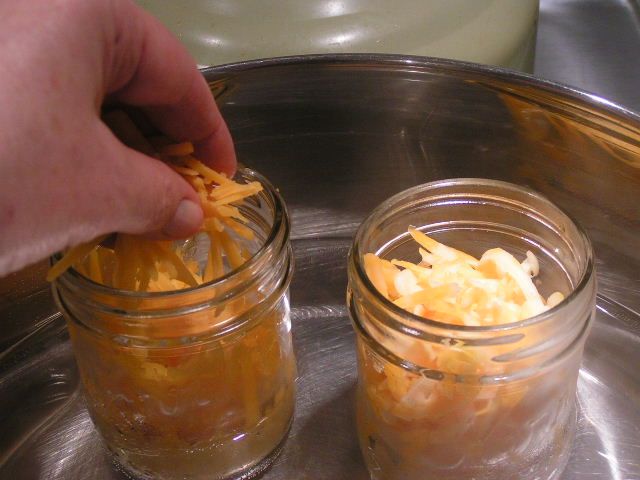 Place some of the shredded cheese into the warm jars and place the jars in warm water that you slowly bring to good and hot. Keep adding more cheese as the cheese melts.
Place some of the shredded cheese into the warm jars and place the jars in warm water that you slowly bring to good and hot. Keep adding more cheese as the cheese melts.
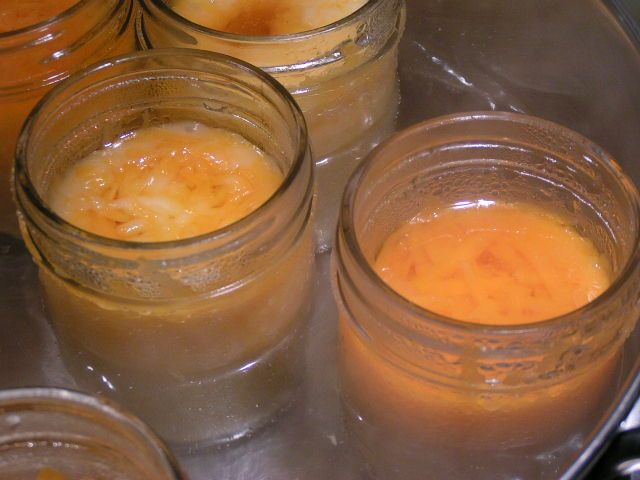 Continue adding and melting the cheese until it reaches a 1” headspace. This requires a deeper headspace because of the oils.
Continue adding and melting the cheese until it reaches a 1” headspace. This requires a deeper headspace because of the oils.
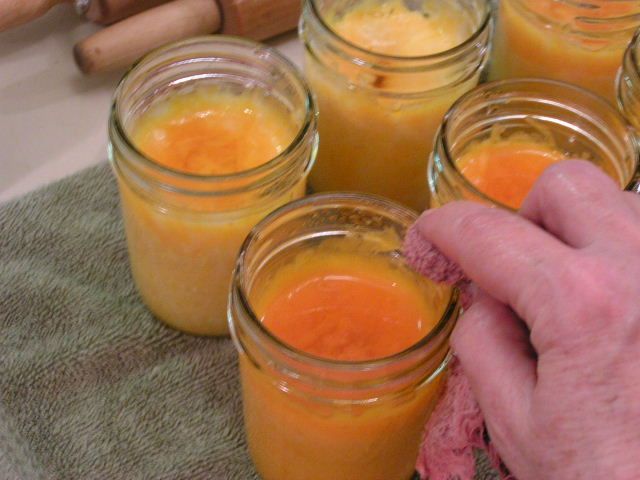 Carefully wipe the tops of the jars with a damp, soaped washcloth to remove all oils.
Carefully wipe the tops of the jars with a damp, soaped washcloth to remove all oils.
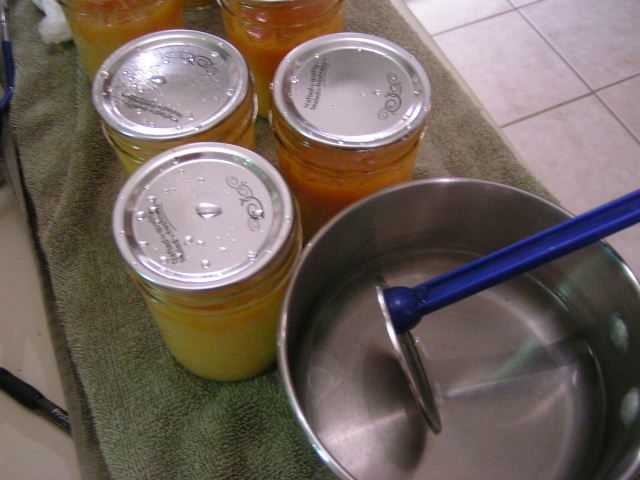 Place lids that have been warmed in nearly boiling water, onto the jars
Place lids that have been warmed in nearly boiling water, onto the jars
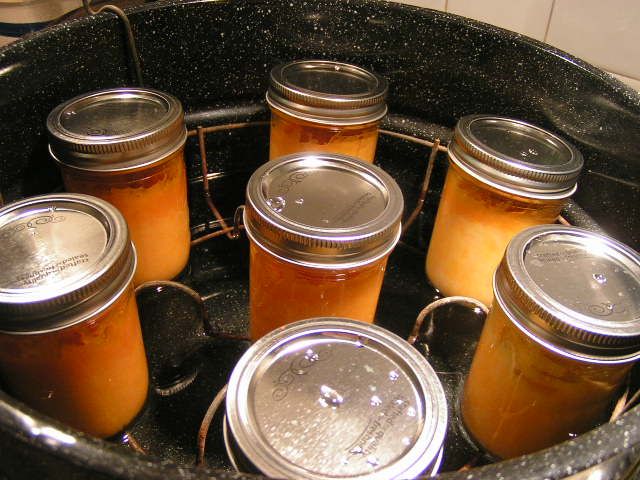 Put the rings onto the jars, not too tight and place into the rack of a waterbath canner
Put the rings onto the jars, not too tight and place into the rack of a waterbath canner
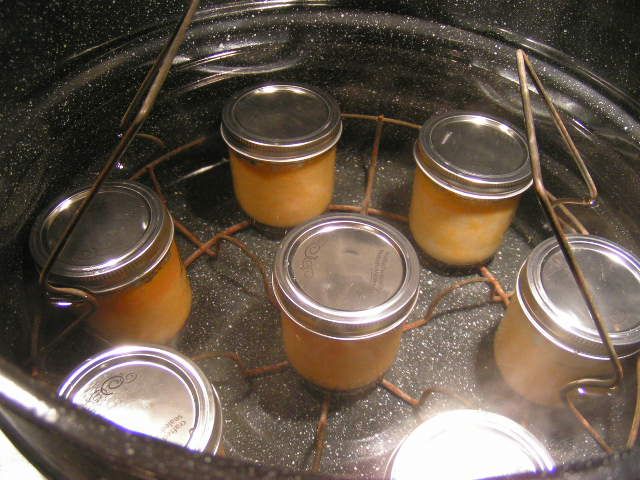 Lower the jars into water that has already been heated. Putting them into cool water will crack the jars. Bring to a boil and at the point of boiling, set your timer for 40 minutes. Process for 40 minutes.
Lower the jars into water that has already been heated. Putting them into cool water will crack the jars. Bring to a boil and at the point of boiling, set your timer for 40 minutes. Process for 40 minutes.
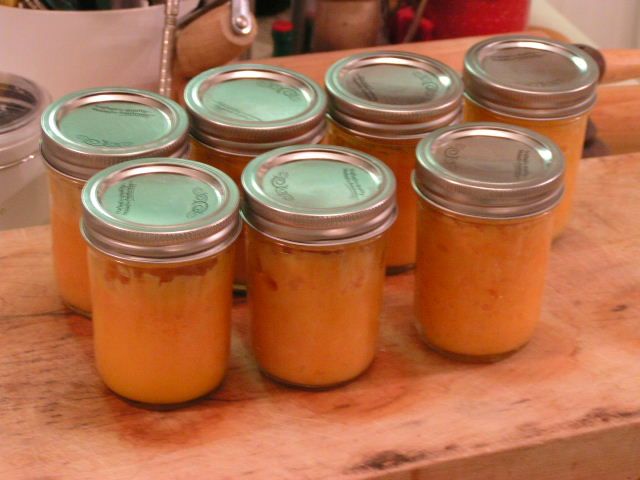 Now here is the important part!! I didn’t figure this out until I pulled the first jar out of the water. DO NOT REMOVE THE JARS FROM THE WATER UNTIL THEY HAVE COOLED DOWN. If you take them out of the boiling water, the oil from the cheese boils out of the jars and they won’t seal. Just leave the jars of cheese under water and allow to cool slowly. THEN take them out of the water. When they have cooled all the way down, I remove the rings and wash jars and rings in hot, soapy water to remove any oils. After drying, I reapply the rings and store the jars of cheese.
Now here is the important part!! I didn’t figure this out until I pulled the first jar out of the water. DO NOT REMOVE THE JARS FROM THE WATER UNTIL THEY HAVE COOLED DOWN. If you take them out of the boiling water, the oil from the cheese boils out of the jars and they won’t seal. Just leave the jars of cheese under water and allow to cool slowly. THEN take them out of the water. When they have cooled all the way down, I remove the rings and wash jars and rings in hot, soapy water to remove any oils. After drying, I reapply the rings and store the jars of cheese.
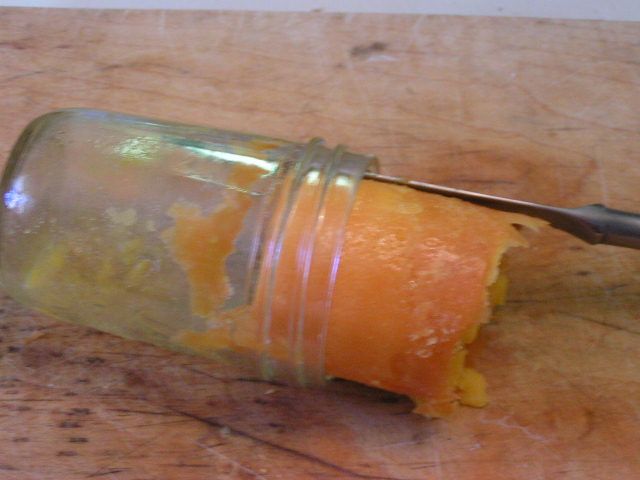
To remove the cheese, open the jar and slide a knife inside the jar and around the cheese. The cheese will just slide out. You can then grate it. At first it is a little oily, but that is just because it is at room temp and some of the oils have separated.
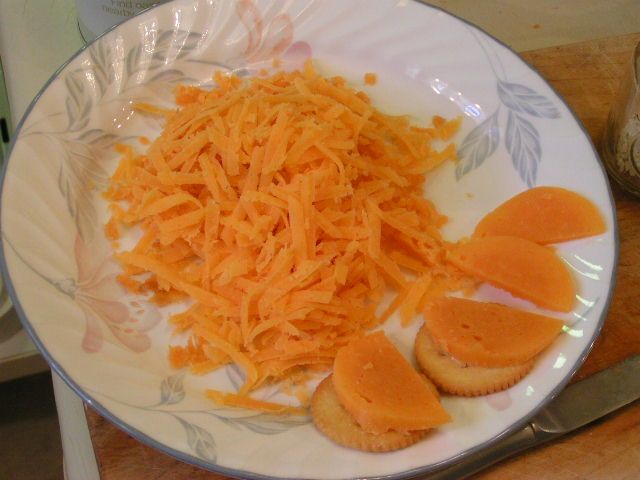 Or slice it! It’s perfect for crackers and cheese.
Or slice it! It’s perfect for crackers and cheese.
Canning Soft Velveeta or Soft Cheese
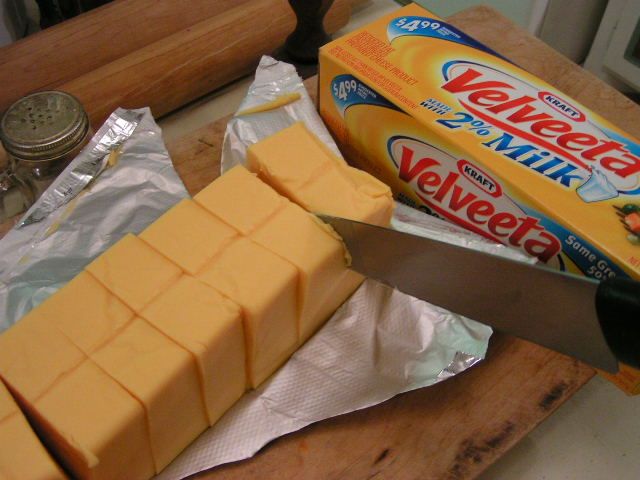 Cube a box of Velveeta
Cube a box of Velveeta
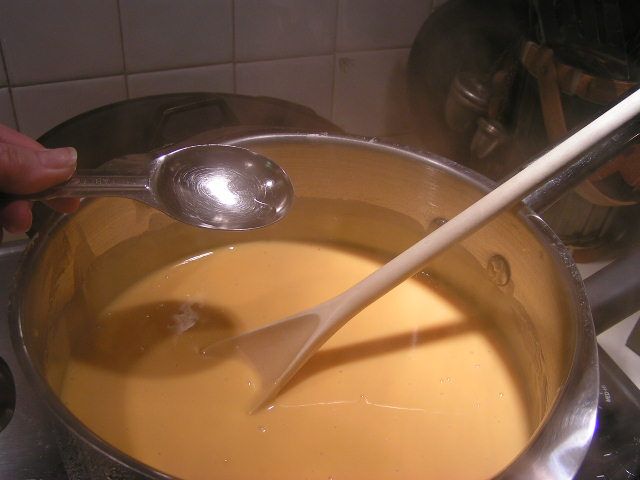
Place in a double boiler with 3 oz canned milk and slowly melt. When melted, add 1 tablespoon of vinegar and stir in
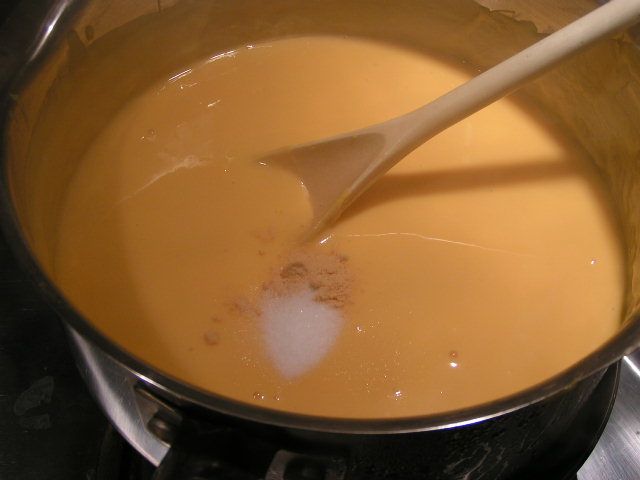 Add 1/2 teaspoon of dry mustard and 1/2 tsp salt and stir well until totally smooth and melted
Add 1/2 teaspoon of dry mustard and 1/2 tsp salt and stir well until totally smooth and melted
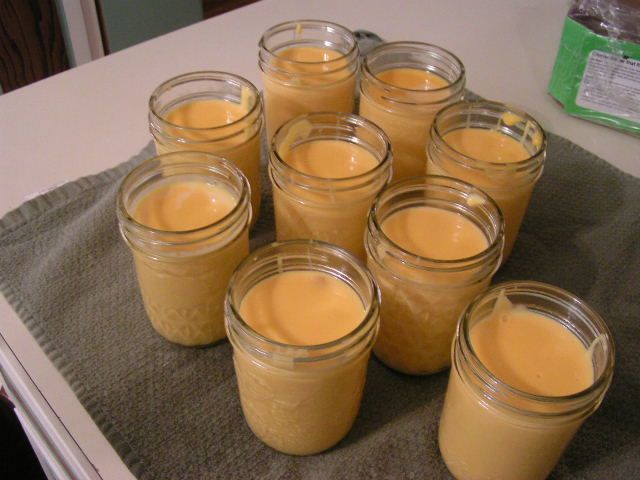 Pour the cheese into jars leaving a 1/2 inch headspace. I use 8 oz jars. I can always open two 8oz jars if I need a pint.
Pour the cheese into jars leaving a 1/2 inch headspace. I use 8 oz jars. I can always open two 8oz jars if I need a pint.
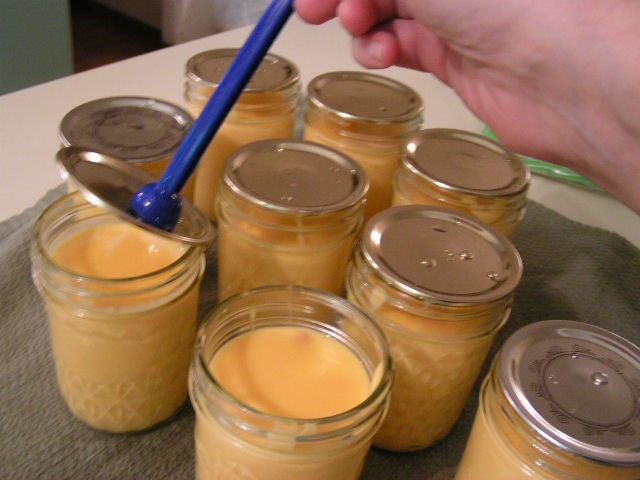 Carefully wipe the rims of the jars to remove any wayward cheese and place lids that have been heated in nearly boiling water on top of jars
Carefully wipe the rims of the jars to remove any wayward cheese and place lids that have been heated in nearly boiling water on top of jars
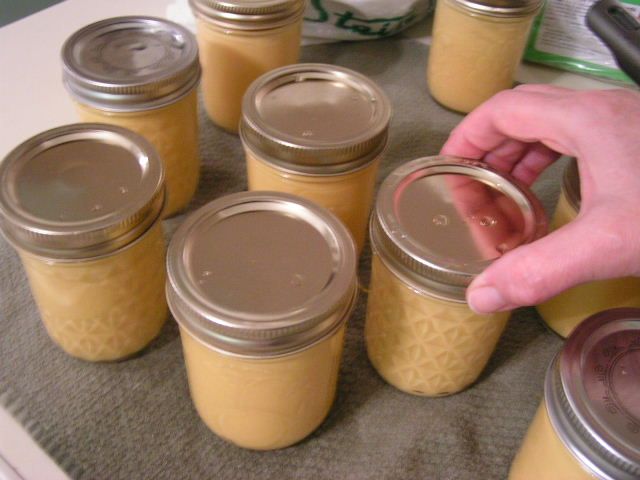
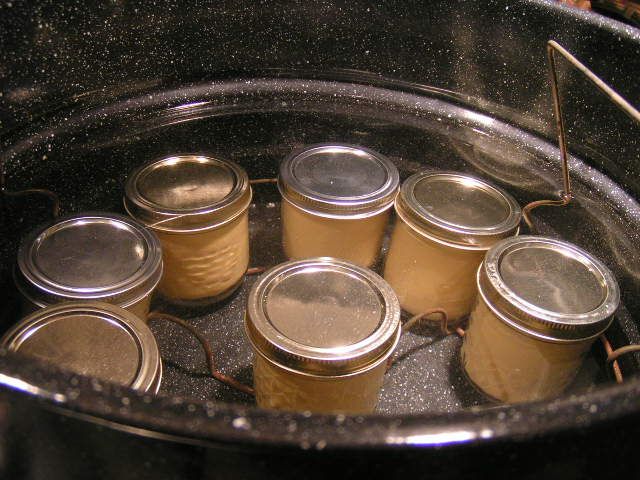
Put rings onto the jars and tighten down slightly. Place jars in waterbath canner rack and lower into water that has already been heated so not to crack the hot jars of cheese. Bring the water to a boil and at the point of boiling, set your timer for 10 minutes and continue to boil.
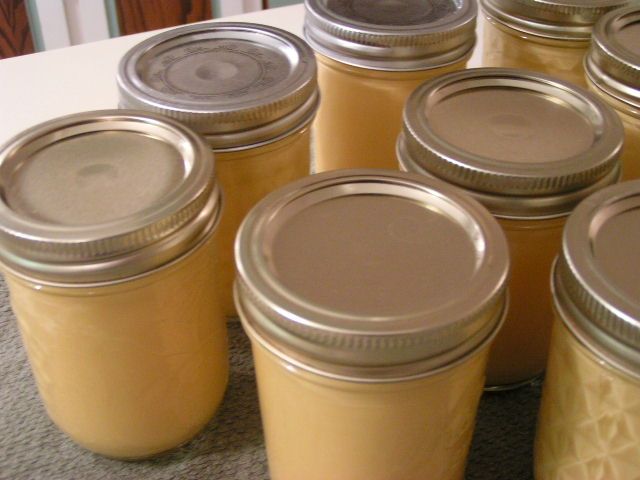 Remove jars from water and allow to cool on a dry towel. You will hear the lids pop as they seal.
Remove jars from water and allow to cool on a dry towel. You will hear the lids pop as they seal.
And so, I’ve learned something new out of necessity. I LOVE having cheese in the can. It is so easy and I don’t have to worry about refrigeration. The cheddar gets a little sharper as it ages and tastes wonderful when opened. So cut the cheese and call me “Happy”!!
Happy Cooking!
MB
Please leave your comments at the comment link that follows!
|





















 Homestead Revival
Homestead Revival Paratus Familia
Paratus Familia Rural Revolution
Rural Revolution